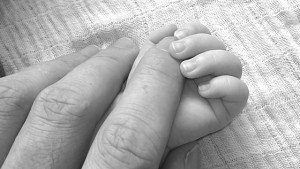Contributor: Article Contributed by Crystal Karges, MS, RDN, IBCLC for Addiction Hope
 Breastfeeding is an incredible time period for the mother and baby dyad. A mother’s ability to nourish and feed her baby allows for numerous benefits, which includes bonding between mother and infant, increased immunity support for the baby, decreased risk for infections and allergies, and an overall improved start in life.
Breastfeeding is an incredible time period for the mother and baby dyad. A mother’s ability to nourish and feed her baby allows for numerous benefits, which includes bonding between mother and infant, increased immunity support for the baby, decreased risk for infections and allergies, and an overall improved start in life.
Breast milk is unique for human babies alone and is the perfect source of nutrition for growth and development. Mothers who choose to breastfeed also have greater flexibility with feeding their baby and often can save money on what might be used to purchase formula.
The convenience of breastfeeding allows a mother to nurse her baby at any time with milk that is perfectly formulated for her growing baby.
When Addiction and Breastfeeding Conflict
What about mothers who may struggle with an addiction to drugs or alcohol? A mother’s desire to feed and nourish her baby may not be lessened by substance abuse. However, there are important precautions to take before deciding to breastfeed you baby.
A mother’s body is designed to produce milk for her baby, which is increased upon delivery of the infant. Many women may not realize that everything that is ingested and put into her body will directly impact her baby should she choose to breastfeed.
This includes what she eats and drinks, as well as any medications, drugs, or alcohol. Most substances can readily pass into breast milk, at which point will be transferred to the baby as nursing commences.
Some women may be under the impression that their actions are no longer influencing their child after pregnancy with the baby no longer in their bodies, but this is not a true assumption if a mother is breastfeeding.
Passing Over The Remnants of Drugs
 Despite the multitude of benefits associated with breastfeeding, this can actually be a dangerous practice if a mother is under the influence of drugs or alcohol. If a mother is struggling with substance abuse, the drugs of choice can easily be passed to the baby through breast milk.
Despite the multitude of benefits associated with breastfeeding, this can actually be a dangerous practice if a mother is under the influence of drugs or alcohol. If a mother is struggling with substance abuse, the drugs of choice can easily be passed to the baby through breast milk.
Since a baby’s body is significantly smaller and still developing, it is less able to handle the effects of drugs and/or alcohol in its body systems. Some of the devastating consequences that may result from substance abuse while breastfeeding include:
- Sudden infant death syndrome
- Difficulties with development and behavior
- Poor weight gain
- Irritability and/or colic
- Defects
- Neonatal abstinence syndrome
Contradictory Advice About Alcohol
With alcohol consumption and breastfeeding, the risks are less defined, and many women may receive contradictory advice about whether or not it is okay to drink while nursing their baby.
As with substance abuse, alcohol can pass into breast milk and cause symptoms in the nursing baby, such as drowsiness, decreased ability to feed, and poor weight gain. Also, being under the influence of alcohol can result in poor judgment and parenting, which puts the infant in danger or neglect from risky behavior.
Steps to Prevent Risk to the Baby
If a mother who is nursing her baby chooses to have alcoholic beverages, there are steps that can be taken to ensure that there are no risks imposed to the baby. These include the following suggestions:
Limit what you are drinking:
While there are no “safe” limits or guidelines for what is acceptable to drink while nursing, limit your intake as much as possible. Avoid hard liquors that have significantly higher levels of alcohol content.
Maximum duration between feeds:
Should you choose to consume alcohol, wait as long as possible before next feeding your baby. It is best to avoid feeding your baby during and for 2-3 hours after drinking alcohol. This allows your body the opportunity to metabolize and break down the alcohol, so that a decreased amount is passed into breast milk.
“Pump and Dump”:
 Should you need to express milk after consuming alcohol, consider using a pump instead of directly feeding your baby.
Should you need to express milk after consuming alcohol, consider using a pump instead of directly feeding your baby.
If you are still feeling neurologically compromised, this is a good indicator that it is not yet safe to nurse your baby.
Pumping is a method that allows milk to be expressed. However, do not save this pumped milk and offer to feed your baby with an alternative source until the next feeding.
Mothers have the unique capacity to feed and nourish their babies. This should be done with discretion, as many substances can be passed to the baby through breast milk. If you or a loved one is struggling with an addiction to alcohol and breast feeding, please reach out for the help you need today to keep you and your baby safe and thriving.
Community Discussion – Share your thoughts here!
What is your experience with alcohol as a nursing mother?
Last Updated & Reviewed By: Jacquelyn Ekern, MS, LPC on February 12th, 2015
Published on AddictionHope.com
